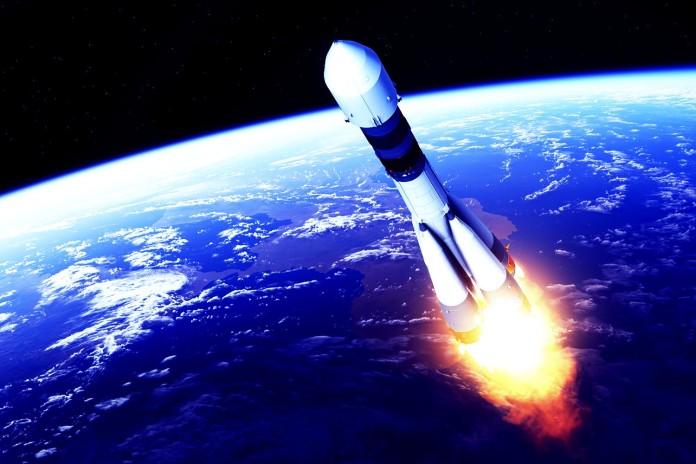
SpaceX may have won the race in terms of reusable rockets, but don’t count out the United Launch Alliance. Boeing and Lockheed Martin are developing a reusable spaceship of their own. As a matter of fact, they already have. Across the Atlantic, the Russian Soyuz is making some impressive strides as well, but will that last long?
BOEING TO USE VULCAN DEATH GRIP ON SPACEX
There’s been a great deal of hype surrounding the ULA’s new Vulcan rocket and for good reason. It’s expected to be more powerful than Lockheed Martin’s Atlas V and also, much more affordable. That being said, it is not reusable like SpaceX’s rockets. Don’t count out Boeing and company quite yet, though. Forget the concept of landing first stage rockets on Earth and reusing them. Boeing and Lockheed are jumping ahead to examine the possibility of a reusable second stage rocket. Even SpaceX can’t claim that accomplishment.
TWO STAGES TO SPACE
The majority of satellite launches uses the two-stage rocket formula. In Stage 1, the core booster burns for roughly three minutes before it’s out of fuel. It then gracefully falls into one of Earth’s beautiful oceans. Unless of course, it’s a SpaceX rocket, then it lands by itself. Stage 2 one the other hand, ignites and carries the satellite the rest of the way. It then runs out of gas only to burn up in Earth’s atmosphere. What the ULA hopes to do is refuel Stage 2 in space and either bring it back or have it link up with larger spaceships in orbit, where it will take on a new mission. SpaceX doesn’t have anything to worry about yet as Boeing’s plans are still in the formative stage. However, Boeing may be implementing this second stage operation on the Vulcan in 2019. With that, their first reusable spaceship could become a possibility.
WILL THIS MARK THE END FOR RUSSIA’S SOYUZ?
If you happen to be an astronaut that needs to hitch a ride to the ISS, Russia’s Soyuz spacecraft is the only way to get there at the moment. Aside from that, Soyuz has just had a successful launch to deliver environmental satellites into orbit. It doesn’t look like Russia has any plans to slow down that operation, but NASA may have some ideas of their own. The agency would certainly like have a little more independence when it comes to getting to the ISS. Having all their trips go through Soyuz can’t be convenient, not to mention a little frustrating. With the increasing success of private spaceflight companies, Soyuz’s grip on NASA may soon loosen up.

















